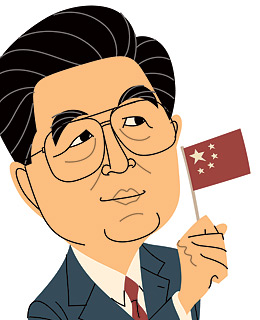
Hu Jintao
I first met Hu Jintao during his visit to Washington in 2002, shortly before his ascension to the pinnacle posts in China. Although our meeting was brief, I was impressed by Hu's knowledge and intelligence, which he conveyed with confidence. I also noticed his disciplined caution, a restraint forged over years of careful preparation and promotion.
President Hu had been favored in 1992 by Deng Xiaoping to be paramount among China's "Fourth Generation" of leaders. Hu's rise through the party's Youth League gave him a network of influence that embodies his attributes of stewardship: loyalty; composed control; dutiful service, including as party secretary in two of China's poorest provinces; and close consultation to build consensus. Hu's vision has been to build a "harmonious society." He aims to overcome the great internal economic and social tensions that have been brought on in part by China's extraordinary growth.
Given this domestic challenge, Hu has sought a benign external environment. It is an irony, then, that China's economic success has created an external challenge that competes for Hu's attention. China is fast becoming a major influence in the world, prompting the question of whether China will be a "responsible stakeholder" in the international system. Hu, 64, has felt the need to explain plans for a "peaceful rise." At the Party Congress later this year, as he approaches the likely halfway point in his tenure, Hu will need to guide the critical promotions and assignments of China's senior personnel. His greatest legacy may turn out to be selecting the leadership that will continue his domestic strategy while moving more quickly to position China constructively in the world. The unanswered question is whether the approach to reforms will go beyond the material and social.
Zoellick was U.S. Trade Representative and Deputy Secretary of State. He is a vice chairman at Goldman Sachs